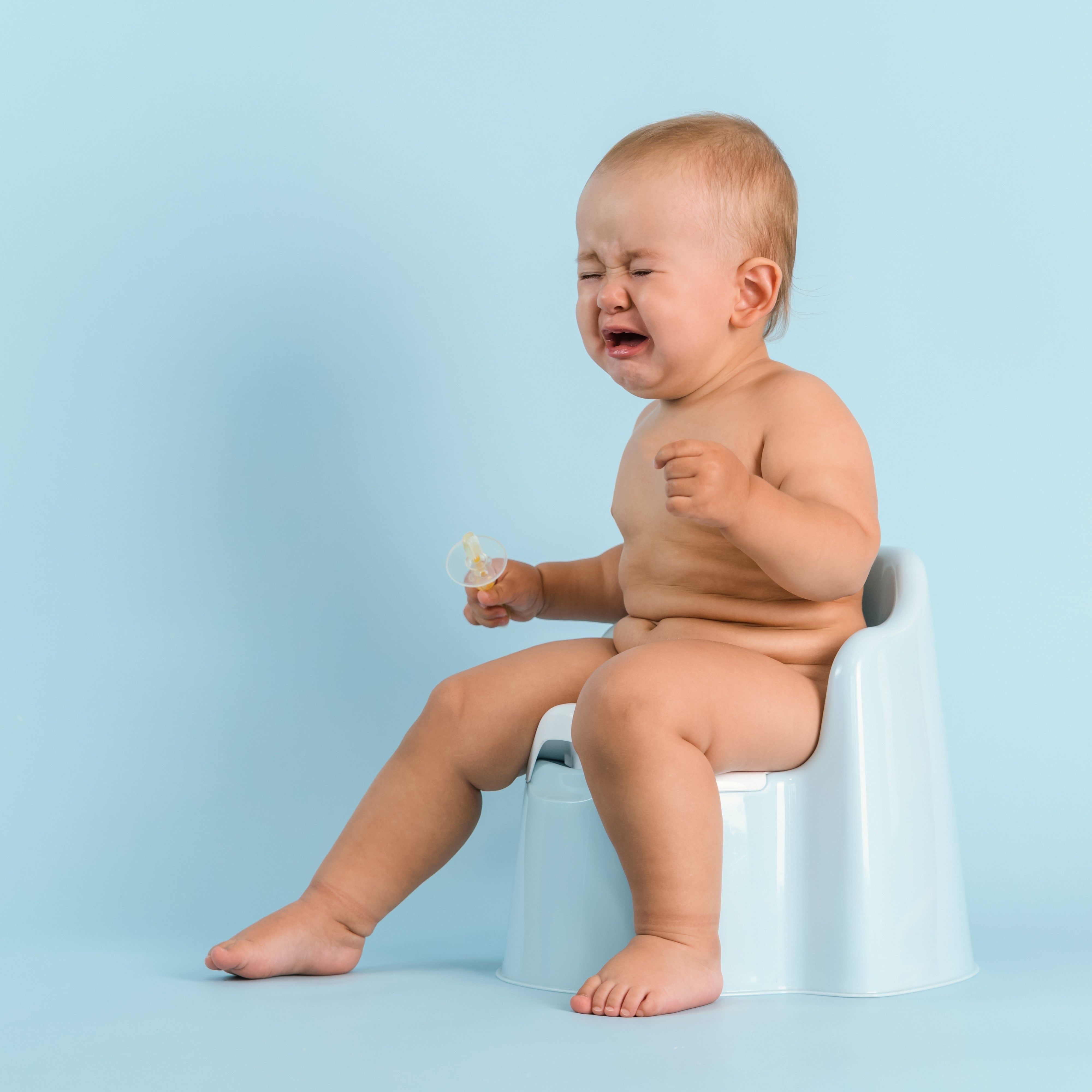Baby is Constipated & Crying: How to Help?
Crying and Constipation
Constipation can be a painful process. Babies can’t verbalise their distress in any way other than crying, and when they’re constipated, their crying can be particularly difficult to hear. As parents, we know the solution is for them to have a big poo. But getting this to happen can be particularly challenging.
Constipation is about the consistency of poo, not the frequency that poos are passed.
How Does a Constipated Baby Behave?
There’s no one typical pattern which constipated babies display. It really depends on the individual baby. Some babies grunt and strain even if they are passing a soft poo.
If constipation is causing pain and discomfort then it’s more likely the baby will cry, go red in the face and look as if they are trying to poo, though nothing is coming out.
- They may not want to feed as much or as frequently as they usually do.
- They’re not as interested in solid food. Their preference may be for sucking and milk - either at the breast or bottles.
- They may start sucking on the breast or bottle and then pause while they strain to poo. They may look like they want to feed but the contractions in their bowel are causing them pain.
- They’re just not happy. They may want to be held more, sleep for shorter periods, need more comforting and seem restless.
What’s Wrong Little One?
There are many reasons why babies cry and it’s important not to assume that constipation is the only answer. Hunger, overtiredness, boredom, feeling insecure or just needing some cuddle time are all common causes for crying.
Some medical conditions cause babies to cry and it’s important these are ruled out by a health professional. If your baby passes blood or they are very distressed, it’s important they are seen by a doctor.
Even if your baby hasn’t pooed for several days this doesn’t necessarily mean they’re constipated. There may be other reasons for their crying.
Ask yourself, is my baby:
- Straining as if they want to poo but can’t?
- Going red in the face, pushing and becoming distressed?
- Passing only hard, dry, pebbly poos?
- Looking as if they have a distended and bloated tummy?
Is Your Baby Straining and Crying When Pooing?
If your baby is crying and in pain when pooing, here's what you can do:
- Observe and support your baby.
- Give them comfort and reassurance.
- Think about your baby’s dietary intake and how this may be contributing to their constipation.
- Stay calm. Remind yourself that in only very rare conditions, does constipation reflect serious medical conditions.
What Is the Best Formula Potion for Constipation?
Is your baby formula fed? Are you looking for the best formula potion for your baby when it comes to constipation? Here are some helpful tips to assist:
- Make sure you are preparing their formula correctly. Always follow the manufacturer’s instructions on the side of the Tin.
- Some babies become constipated when they transition between stages of formula, or between brands.
- We normally recommend a transition plan, by mixing the old and new powders at certain rations over a few days, giving the baby's digestive system a chance to adapt slowly. Below is the transition table you can follow.

What you can do if your baby is breastfed:
- Offer extra breastfeeds, particularly in the late afternoon and evening. In hot weather your baby is likely to become thirstier.
- Increase your own fibre intake. Eat some more fresh fruit and vegetables, dried fruits and drink more water.
Important
Breastfed babies rarely become constipated. Constipation in a breastfed baby can be a sign that the baby is not getting sufficient milk. Dry, hard, crumbly poos don’t contain sufficient water to keep them together.
In the early weeks of life, babies tend to poo very frequently, up to five or more times each day. After a few weeks, breastfed babies may not poo for several days or up to a week. When they do poo, it is usually a large amount, though soft.
Many breastfed babies ‘store up’ their poos for a few days. When they do poo they may have several poos in one day. This is not a sign that anything is wrong and is fairly typical behaviour in a breastfed baby who a few months of age.
If your baby is breastfeeding and their poos are hard, speak with your Child Health Nurse or doctor.
Remember,
Speak with your Child Health Nurse or doctor if you are concerned about your baby’s bowel habits. Constipation can be a sign of insufficient milk intake or, more uncommonly, health concerns.

